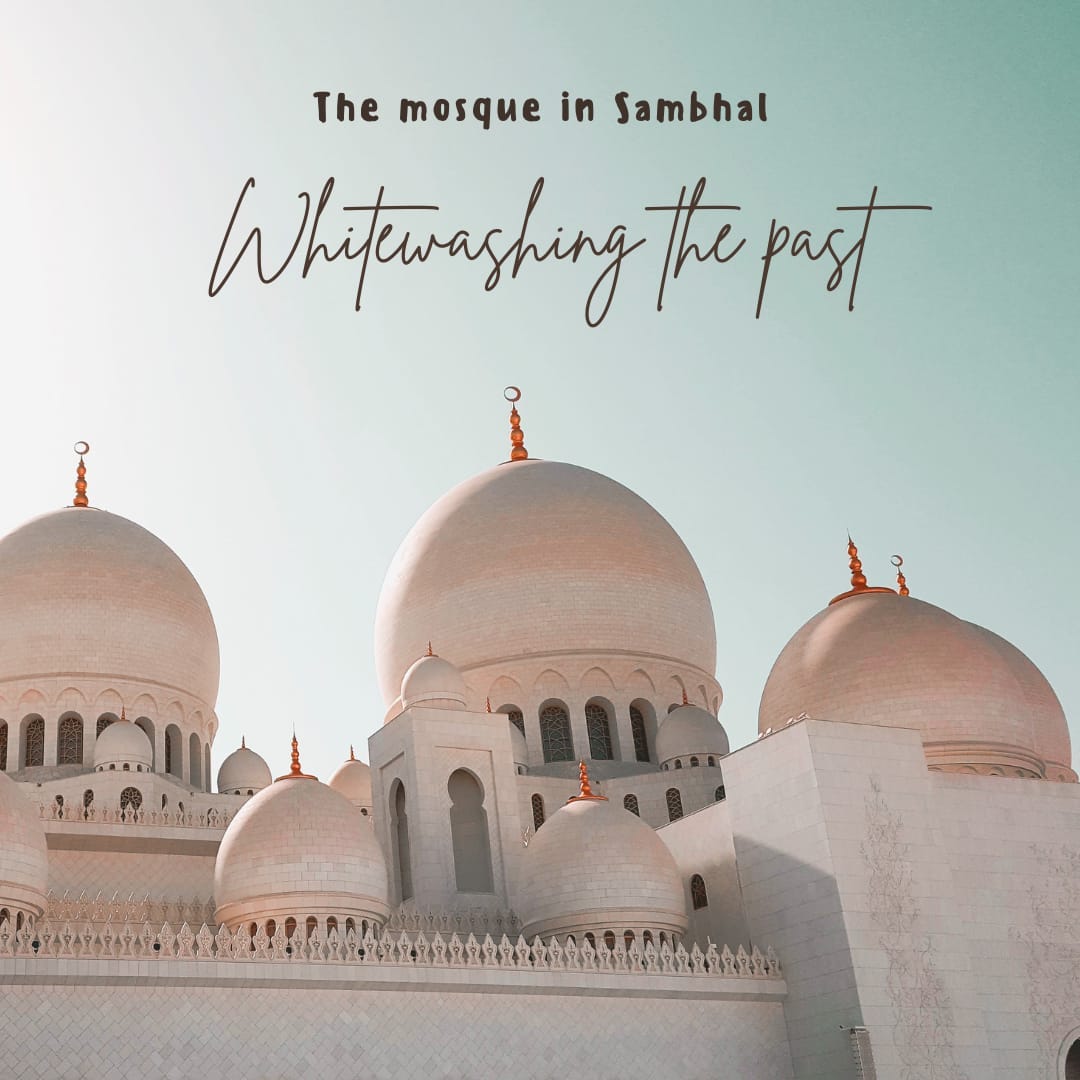#34 Whitewashing the past
There's an ongoing contentious legal battle around a 16th century mosque in Uttar Pradesh's Sambhal. Now, the High Court is passing orders on whether it needs a whitewash before Ramzan.
Welcome to the third edition of All Things Indian, where I unpack the complexities of contemporary India. Each post is a short piece of fiction based on real people I have seen, heard of and met during my decades of reporting. Each story will give you a short insight into the state of affairs in India today.
I turn 83 today. Yes, I am older than independent India itself. But, I am happy to report that I am healthier than the country. I don’t spend my mornings and evenings thinking of the past that was not. My father used to say that cancer enters the body disguised as discontent and moves through the blood stream infecting the every cell. “At some point, you will become discontent itself,” he used to say. “Cancer doesn’t kill you as fast as discontent will.”
I am happy in my small shop selling candy, cigarette and cola. My regular customers come to me to not only buy that fizzy drink but to talk. “Chacha, you are so full of amazing stories,” they tell me.
Yes, I am full of stories.
On summer morning, I had told Jawaharlal Nehru that I was a Hindustani and needed no other identity, when visited our small town of Sambhal.
A few years later, Bhagat Singh responded to my letter on why I wanted to be an atheist.
Gandhiji ate groundnuts in my house when he stopped in Sambhal on his way from Allahabad to Delhi and convinced me that Hinduism can be an all embracing way of life.
Dr Ambedkar almost persuaded me to convert to Buddhism.
These are all the stories I share with my customers. Some raise eyebrows. Some ask questions. Some simply roll their eyes and move on.
That fateful November day, when a few men in striped shirts strode into the street and began walking towards the Jama Masjid, I watched in horror. I had seen many such days, when men wielding files come to town wanting to know out history. Instead of asking people like me, they choose to dig around. They want to dig so deep into the past that even healed wounds are raw again.
Open wounds take longer to heal. Often, they become large enough to engulf past, present and future into them. My grandsons have fallen into one such open wound.
They had stepped out into the streets in November, when some court ordered that more men in striped shirts come to find out if a temple existed in the place of the Jama Masjid.
Both my grandsons stood there, nailed to the streets, when their friends fell down after police fired at their shoulders and chests.
They came home crying. Grown men crying like their six and five year old sons. “That’s it, dadaji” one of them told me the next morning. “That’s it”
I told them that I had seen worse. I lived through 1947.
“We have not,” they told me.
That’s fair. They had not.
I told them stories of Nehru and Ambedkar. Gandhi and Bhagat Singh.
”They are dead,” my grandsons told me.
That’s true. They are dead.
I told them I had ran around in these streets as a boy.
“That’s history,” they said.
That’s true. It was in the past.
I didn’t have much else to say. This will be my last Ramzan in Sambhal, the town where Vishnu’s avatar Kalki might be reborn. Even as the High Court decides if the Jama Masjid should be whitewashed and cleaned for the Eid or not, I will wash my heart clean off all the hatred and resentment.
Why carry the cancer with me.



Powerful. We are like this only.
Brilliant as always! Thanks for writing this Raksha